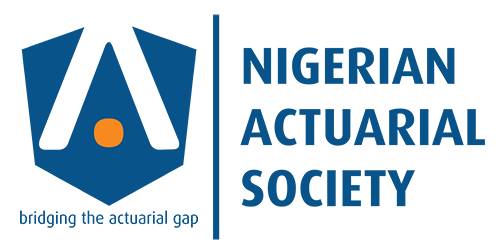The Executive Secretary of the Financial Reporting Council of Nigeria, Dr Rabiu Olowo, has said that the country would be integrating international standards on actuarial practice into its regulatory landscape.
Olowo made this disclosure on Wednesday at the 2025 Annual Industry Conference organised by the Nigerian Actuarial Society, themed ‘Creating value and building resilience in an evolving industry.
Established in December 1986, the Nigerian Actuarial Society is the premier Nigerian actuarial professional body comprised of actuaries and students practising in the country.
Speaking at the event, Olowo said, “We have just concluded the exposure of the Draft Nigerian Actuarial Practice Regulations 2025, which proposes the adoption of International Standards of Actuarial Practice to be fully integrated into Nigeria’s regulatory framework.”
He added that the Council, in collaboration with the Federal Ministry of Education and the Federal Ministry of Industry, Trade and Investment, “will be spearheading the design of a bold national policy framework to provide federal funding for actuarial education at tertiary and postgraduate levels, introduce actuarial science as a subject at the senior secondary level and integrate actuarial concepts within primary school social science curricula to spark early interest.
“This is no small task. It will require comprehensive curriculum redesign, as well as recruitment and training of qualified educators. But if Nigeria is to be globally competitive, this is the path we must take,” he noted.
The Commissioner for Insurance, Olusegun Omosehin, who was represented by the Deputy Commissioner for Insurance, Dr Usman Jankara, asserted that it was time for the players in the insurance sector to commit to deliberate action developing actuarial capacity.
He said, “As part of our strategy at the National Insurance Commission in this regard, a guidance of insurtech operations in Nigeria has been concluded and will be issued. The Commission has also launched the actuarial capacity development initiative, which is intended to build actuarial talents, and efforts are ongoing to implement it.”
However, there are a lot of challenges, key among which is funding. We are actively engaging development partners such as the Africa Re Foundation, GIZ, UNDP and other international donors to secure funding and support for this initiative. While these efforts are going on, it has become imperative for the Nigerian insurance industry to bite the bullet and commit to funding deliberate actuarial capacity.”
The Managing Director/Chief Executive Officer of AIICO Insurance, Babatunde Fajemirokun, lending his voice to the conversation, said, “Insurtech opened new exciting frontiers for actuarial practice, especially in the area of dynamic pricing, innovative risk pooling mechanisms and predictive modelling, and that is one thing we are keen on developing. These demand that actuaries expand their tool kits.”
Earlier, in his opening remarks, the president of NAS, Jolaoluwa Fakoya, noted that it was no longer sufficient for institutions or professionals to simply survive volatility: “We must learn to create value from it, to benefit from it, to adapt and to grow stronger. As actuaries, our role goes beyond analysis; it extends to leadership, stewardship, and innovation. This conference is a space for us to reflect, retool, and reimagine how we add value and build resilience in everything we do. Our profession is a calling to build resilience, equipping businesses, institutions and communities to thrive amidst uncertainty and change.”















